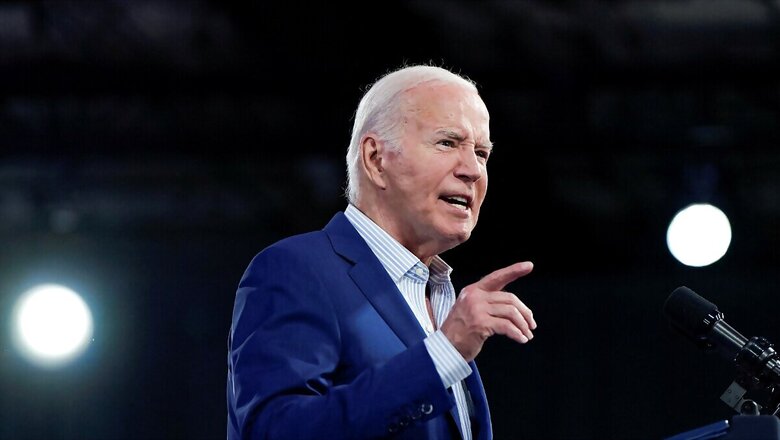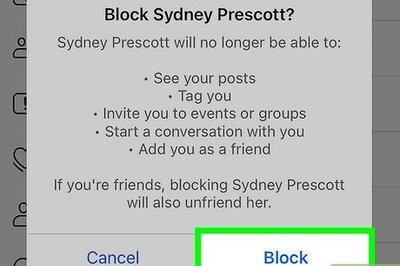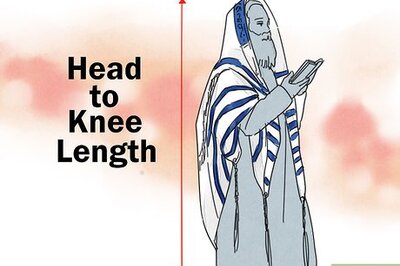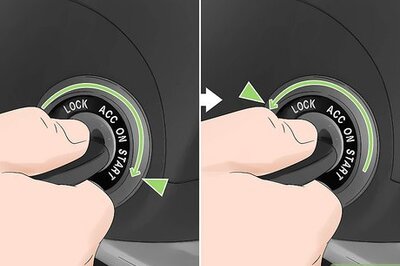
views
After a shaky performance at the Atlanta debate stage with former President Donald Trump on Thursday night, US President Joe Biden is set to hold an important family meeting at Camp David to discuss the future of his re-election campaign.
This meeting, ahead of the November election, comes as some Democrats openly questioned whether Biden should be replaced as their candidate for the 2024 election. On Saturday, the Atlanta Journal-Constitution published a front-page editorial asking the 81-year-old US president to pass the torch to a more competent candidate after similar bids by American dailies like The New York Times.
Is There A Plan B?
The Democratic Party has had no real Plan B for Biden as its presidential candidate, according to Elaine Kamarck, a senior fellow at the Brookings Institution think tank and a Democratic National Committee (DNC) member. Elaine, who is also the author of the book “Primary Politics” about the presidential nominating process, said Biden ran virtually unopposed for the party’s presidential nomination this year.
“He will not be nominated officially until later this summer, so there is still time to make a change and a handful of scenarios to enact one: Biden could decide himself to step aside before he is nominated; he could be challenged by others who try to win over the delegates he has accrued; or he could withdraw after the Democratic convention in Chicago in August, leaving the Democratic National Committee to elect someone to run against Trump in his place,” she told Reuters.
When asked about the next likely outcome, Elaine said, “Right now, the process largely depends on Biden. He would have to agree to step down or face a challenger this late in the process who would try to force him to do so. So far Biden has shown no indications of wanting to step aside and no opponents have challenged him directly.” “In fact some of his top potential replacements – Vice President Kamala Harris and California Governor Gavin Newsom – spoke passionately in his defense after the debate, serving in a surrogate role that showcased their support but also contrasted their smooth delivery with his faltering one on the Atlanta debate stage,” she added.
If He Steps Down
Biden spent the last several months accruing nearly 4,000 Democratic delegates by winning primary elections in U.S. states and territories. Those delegates would normally vote for him, but the rules do not bind or force them to do so. Those delegates can vote with their conscience, which means they could throw their vote to someone else. If Biden “releases” his delegates by stepping aside, there could be a competition among other Democratic candidates to become the nominee.
In the event of Biden’s hypothetical resignation or incapacitation, potential replacements within the Democratic Party have emerged without a clear frontrunner. Vice President Kamala Harris would likely be prominently considered, despite challenges in her role and lackluster polling numbers. According to the U.S. Constitution, the vice president assumes the presidency in such scenarios, but internal party procedures for selecting a nominee remain undefined.
Who Next?
Choosing a nominee would involve a competitive process among Democratic heavyweights, necessitating candidates to garner signatures from 600 convention delegates. In 2024, there are anticipated to be 4,672 delegates, including pledged delegates and superdelegates. Should no candidate secure a majority, a brokered convention would ensue, where delegates negotiate to select a nominee through multiple rounds of voting.
If Biden resigns post-convention in August, the decision would fall to the 435 members of the Democratic National Committee (DNC). These members, equally representing genders and diverse constituencies like labor and LGBTQ groups, would convene to decide on a replacement. The process would involve nominating speeches, seconding speeches, and a vote in Washington, with ballots potentially handled virtually if necessary near Election Day on November 5.
(With agency inputs)




















Comments
0 comment